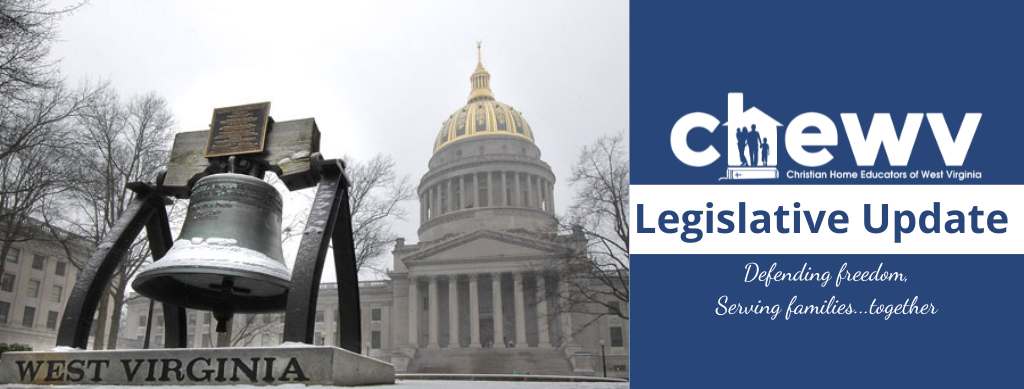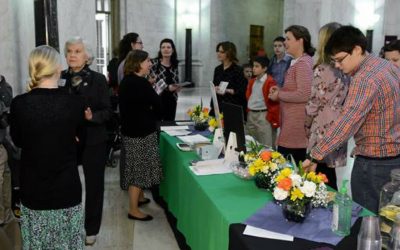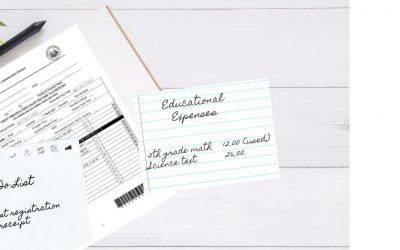CHEWV has been following the progress of HB 2777, a bill that makes several changes to the private homeschooling exemption in 18-8-1. The bill, which has existed in three different iterations in the last week, has just passed the House and been referred to the Senate.
It’s time to outline what this bill does – in preparation for battles that we expect may lie ahead as CHEWV works to fix problematic language in the Senate version.
What does HB 2777 do? The changes are listed below in the order they appear in the bill:
- Establishes a 10-day waiting period for counties to review a pending child abuse investigation when a parent applies to homeschool under Exemption c1.
- Switches Notice of Intent and academic assessment result submittals from the county level to the State Board of Education.
- Requires the State Board of Education to establish an electronic School Choice Portal through which required information could be submitted to the State.
- Authorizes the State Board of Education to request “parents to provide any information that they are not legally required to provide” as long as the request is labeled as optional.
- Removes the requirement for a high school diploma or equivalent for the person providing the instruction.
- Removes the requirement that standardized tests used for academic assessments be published and normed within the last ten years.
- Removes the list of subjects (math, reading, etc.) required to be tested in the annual academic assessments. (The subjects are retained for the portfolio option.)
- Overlaps the Notice of Intent requirements for Hope scholarship students with the requirements for homeschool students using exemption c2.
Most would probably see these changes as a “mixed bag” – and we would agree.
CHEWV has three foundational areas of concern:
#1. HB2777 authorizes the State Board of Education with broad authority to solicit information from homeschoolers. We believe that authorizing the State with such authority is unwise and would inevitably open the door for excessive data collection and ultimately pave the way to require this additional information from all homeschoolers.
#2. HB2777 converts both the county and state boards of education into de facto judges when a prospective homeschool parent is under a child abuse or neglect investigation. In those circumstances, the bill provides that a board “may not approve a request for home instruction” until it has “reviewed” the investigation. The county or state board then has 10 days “to determine whether approval for home instruction is warranted if such an investigation is active.” It also can grant “provisional approval for home instruction” for a child withdrawing from school “pending review of the investigation.” Although this provision will impact relatively few homeschool families, it could easily be expanded in the future to capture all homeschoolers, as is the incremental nature of legislation. And while this section of the bill is undoubtedly well intentioned, it is deeply misguided. First, it empowers a group of educators to evaluate confidential Child Protective Service (CPS) investigative information that is normally only shared with law enforcement and court personnel, creating significant concerns about both competency and privacy. Second, the affected section of the law already allows the county or state board to deny a request for homeschooling “for a good and reasonable justification”–without reviewing incredibly sensitive, confidential, and potentially false allegations of child abuse or neglect. Third, CPS already has the tools to protect children in such circumstances. For example, it can facilitate the removal of a child from the home if there’s evidence that the child is in danger. Therefore, this section of the bill doesn’t actually provide any special protection for children; it just makes it harder for some of their parents to homeschool while exposing otherwise private and confidential information to educational bureaucrats. We know of no other state in the country that has adopted any similar legislation.
#3: HB 2777 blurs the line of legal separation that needs to be maintained between privately-funded homeschoolers operating under Exemption c2 and Hope scholarship students operating under Exemption m:
- Rather than keeping Notice of Intent requirements separate, Exemption m would refer to the requirements in Exemption c2. Therefore, if additional information were required of Hope students, it could very well be placed in c2, affecting privately-funded homeschoolers.
- The School Choice Portal section contains no language assuring that the portal will keep requirements for Hope students separate from privately-funded homeschoolers. We believe that the portal would be a step toward consolidating the requirements for these two separate legal categories that in fact have different requirements.
Maintaining a clear legal separation is something that CHEWV strongly advocates. We strive to guard against incursion, for the private homeschool option is of paramount importance as the ultimate safety net for all other schooling options.
Additionally, significant numbers of homeschooling families want to continue to homeschool without getting intertwined with government funding requirements. For over thirty years, private homeschooling has been rigorously maintained through carefully worded, hard-won exemptions.
The bottom line: we believe there are too many downsides to support this bill.
There are 11 days left in the 2025 WV Legislative Session. Please join us in prayer for protection of homeschooling. We will issue an alert when contacts might be most effective.





Recent Comments